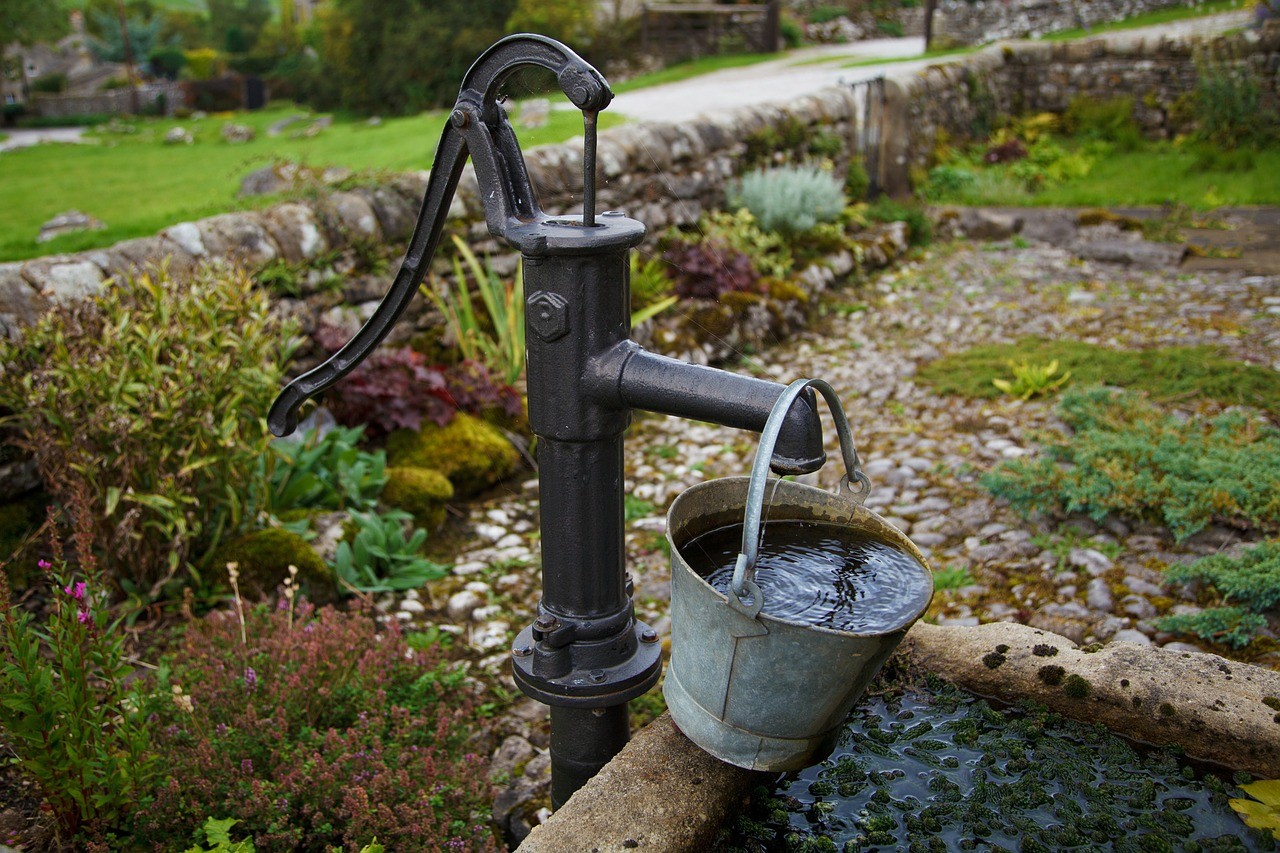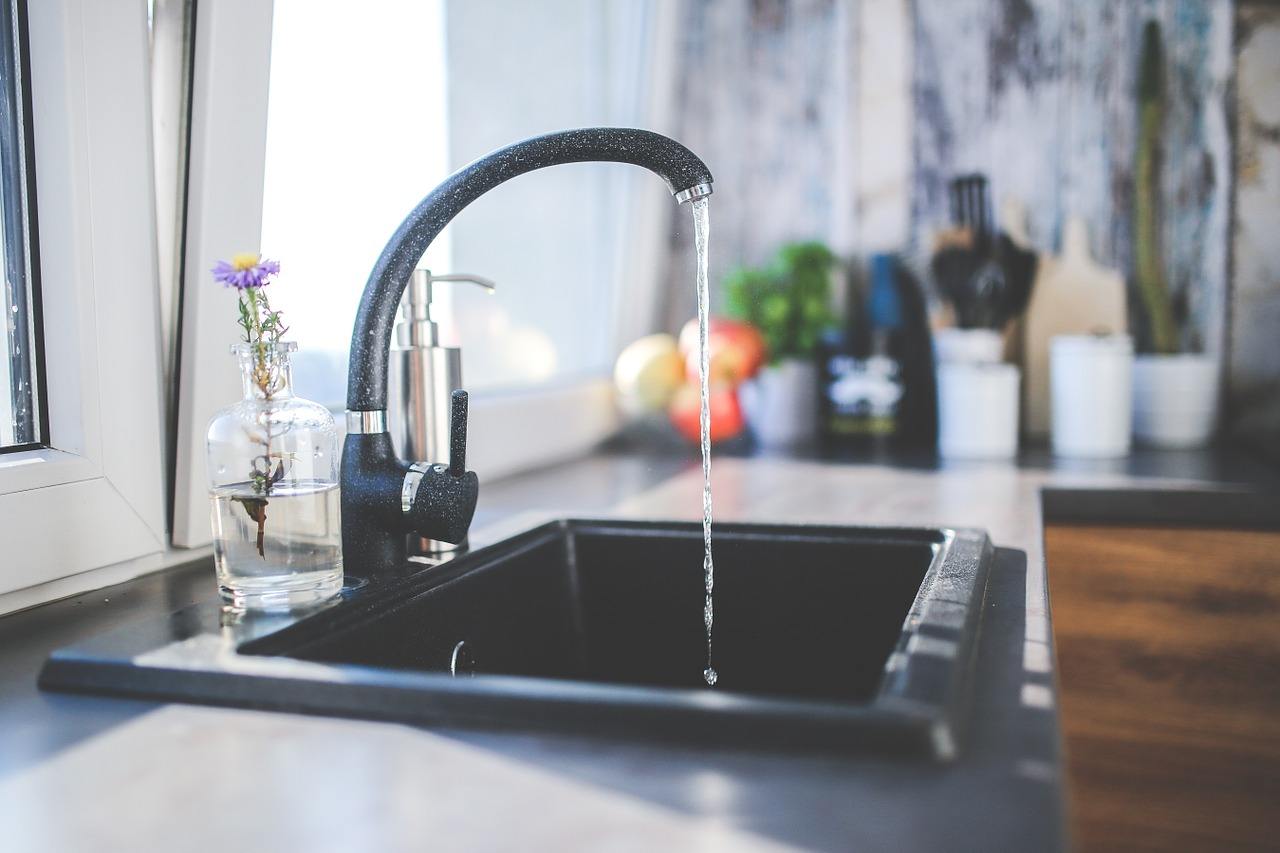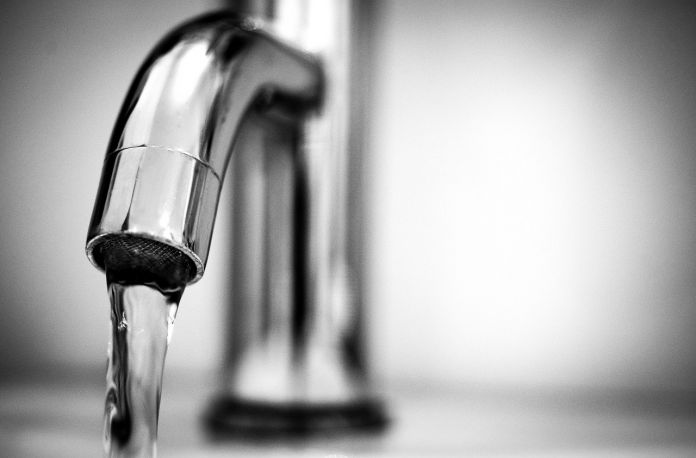People in America mainly depend on municipal water sources. On the other hand, people living in small towns or remote areas typically don’t have access to the municipal water supply. In these regions, private wells serve as the only source of potable water. So, well water or city water – which is better? This article will compare well water vs. city water pros and cons to help you make the right choice between the two of them.
Well-water is from the deep underground beneath the earth’s surface. People living in remote areas drill deep into the earth’s layers to reach the porous rock, also known as an aquifer, and use a pump to bring the water to the surface.
When natural water moves through the layers of soil and rock, it gets filtered to some extent. However, well water contains disease-causing pathogens and other impurities. Hence, a water filter system is necessary to eliminate disease-causing pathogens and other contaminants. Homeowners who have private wells in their properties must test the water once a year to ensure that it does not contain harmful chemicals or pathogens.
Benefits Of Using Well Water
#1. Well Water Is Cheaper
A household that depends on a private well for water supply does not require to pay water taxes. It is an added advantage to use water from a private well. In some places, private wells increase the value of the property.

#2. No Disruption To Water Supply
Households with a private well do not have to worry about sudden cutoff in supply due to maintenance service. Natural disasters or emergencies can also disrupt the water supply, but private wells remain safe as the water travels over a short distance.
#3. Healthy Drinking Water
Unlike water from municipal sources, well water does not contain any chemicals. It also has certain minerals that can be beneficial for your health.

Drawbacks Of Well Water
#1. Consume Electricity
Houses with private wells do not have to pay water bills due to frequent water pump usage. Power cuts also disrupt the water supply, and homeowners should always keep a backup generator for emergencies.
#2. Contains Impurities
Water from municipal sources is clean and drinkable. But homeowners need to spend extra money in installing and maintaining filtration mechanisms for private wells.

#3. Water Can Get Contaminated
Contaminated water poses a serious health risk. The presence of impurities like toxic chemicals, pollutants, or bacteria can lead to various diseases. People living in urban areas mainly depend on municipal water sources. Typically the consumers need to pay a water bill based on their usage.
Municipal water comes from nearby rivers, lakes, and streams or wells, also known as surface water. The natural water is treated with chlorine and other chemicals to make it suitable for consumption. It ensures that the water does not contain any harmful contaminants like chemicals or bacteria.
Read more: What Filter System, If Any, Removes Fluoride From Tap Water?
Benefits Of Municipal Water
#1. Convenience
Obtaining water from municipal sources is a lot more convenient than from private wells. Besides, natural disasters or emergencies do not disrupt the supply, and people have instant access to drinkable water.

#2. No Responsibility
Homeowners do not have to worry about water testing and other expenses of filtration. The municipal body’s responsibility is to maintain the water pipes, filtration systems, water treatment plants, and other supply system mechanisms.
#3. Does Not Contain Any Impurities
Factories treat municipal water before supplying it to the households. Homeowners do not need to pay any additional charges for maintaining their disinfection system.

Drawbacks Of Municipal Water
#1. May Contain Contaminants
City water might contain bacteria like e Coli, pesticides, heavy metals, or fluorides. However, small quantities of these contaminants do not cause any harm.
#2. Monthly Water Bills
City homeowners need to pay monthly water bills to receive water from municipal sources. Usually, the charges are not too high, but accounts can go up if the usage is high.

Conclusion
The above discussion makes it tricky to tell which of the two is a cheaper water source. It entirely depends on the control, expense, and responsibility one would like to take to supply drinkable water. The significant difference between city water and well water lies in the quality of the water. On the other hand, one can quickly get the desired water quality from both sources by installing a proper filtration system. Using a combination of filters helps reduce the chances of water contamination, irrespective of its origin. Also, limiting the wastage of water can help cut down water bills.



















